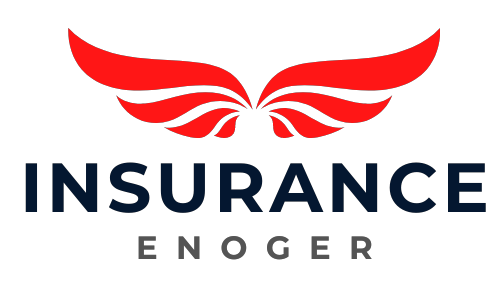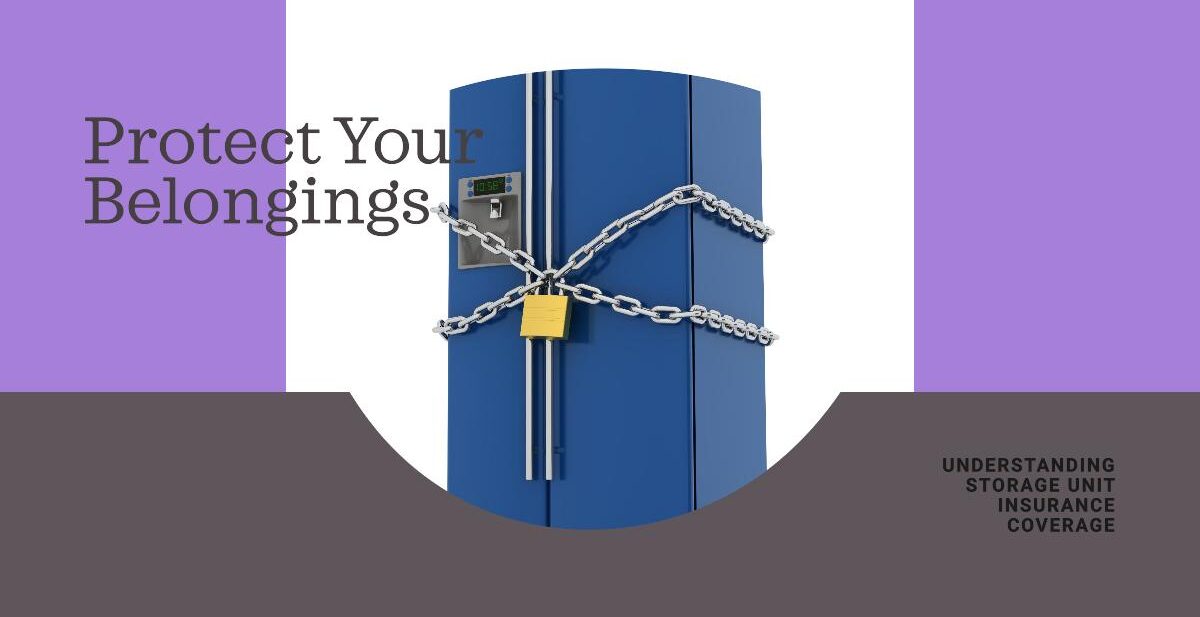Your storage unit insurance typically covers a wide array of potential risks to your belongings. It protects against natural disasters like floods, earthquakes, and hurricanes, though you may need additional riders. Fire damage is usually covered, but avoid storing flammable materials. Coverage for water damage, including leaks and floods, may require additional flood insurance. Theft and vandalism are also typically included, with policies covering repair or replacement costs. Pest damage is often covered but check specific terms. Accidental damage from unforeseen events is also included. Each policy has its nuances, so let’s explore the specifics further.
Natural Disasters
When considering insurance for storage unit contents, it’s crucial to understand how natural disasters like floods, earthquakes, and hurricanes can impact your stored belongings. Natural disasters are unpredictable and can cause extensive damage, making it essential to ensure your items are adequately protected.
First, let’s address flood preparation. Floods can occur unexpectedly due to heavy rainfall, river overflow, or storm surges. To minimize risk, place your belongings on elevated pallets or shelves, avoiding direct contact with the floor where water can easily reach. Waterproof containers or bins can provide an additional layer of protection. Confirm with your insurance provider that flood damage is covered, as it may not be included in standard policies and could require specific flood insurance.
Next, consider earthquake safety. Earthquakes can cause severe structural damage, leading to the collapse of storage units or the shifting of heavy items. To safeguard your items, use sturdy shelving units secured to walls and avoid stacking heavy objects on top of lighter ones. Wrapping fragile items in protective materials and securing them in place can prevent them from breaking. Check that your insurance policy covers earthquake-related damages, as it might require an additional rider.
Hurricanes, combining the threats of both floods and strong winds, demand comprehensive preparation. Ensure your storage unit is in a facility equipped to withstand high winds and water intrusion. Opt for a unit with reinforced doors and walls, and use weather-resistant coverings for your belongings.
Fire Damage
Fire damage poses a significant risk to stored belongings, necessitating comprehensive measures to ensure their protection. When considering storage units, you should prioritize fire safety to safeguard your valuables. Though storage facilities often have fire suppression systems, it’s essential to understand how insurance policies can protect you against fire-related losses.
Your insurance policy should explicitly cover fire damage, as this provides a financial safety net in case of unforeseen incidents. Start by examining the terms and conditions of your storage unit insurance. Look for clauses that detail the extent of coverage for fire damage. Some policies may only cover specific items or impose limits on the reimbursement amount. Knowing these details ensures you aren’t caught off guard in the event of a fire.
Moreover, take proactive steps to enhance fire safety within your unit. Avoid storing flammable materials like gasoline or propane, and keep a safe distance between items and electrical outlets. Many insurance providers offer discounts for units equipped with advanced fire protection measures. You could benefit from these incentives while ensuring your belongings remain secure.
In addition, it’s wise to document your stored items meticulously. Taking photographs and maintaining an inventory list can streamline the claims process if fire damage occurs. Insurance companies appreciate detailed records as they expedite claim settlements, letting you recover faster.
Water Damage
In addition to fire risks, water damage can severely impact the safety and integrity of your stored belongings, making it crucial to understand how your insurance policy addresses such incidents. Water damage can stem from various sources, including leaks, floods, and even humidity. Knowing how your policy covers these scenarios ensures you’re prepared and your items remain protected.
When evaluating your storage unit insurance for water damage, consider the following aspects:
- Coverage for Leaks and Floods: Check if your policy covers damage from external sources, like heavy rains or plumbing failures. Not all policies include flood insurance, so you might need additional coverage.
- Humidity Control: Excessive humidity can cause significant damage over time, leading to warped wood, rusted metals, and spoiled documents. Ensure your policy acknowledges the importance of humidity control and offers compensation for humidity-related damages.
- Mold Prevention: Mold can thrive in damp conditions, destroying fabrics, paper, and other materials. Verify if your insurance policy includes provisions for mold prevention and remediation costs.
- Proper Unit Maintenance: Insurance companies might require you to take reasonable steps to maintain your storage unit. This includes regular inspections and ensuring there’s no standing water or leaks. Failure to do so could affect your claim eligibility.
Understanding these elements helps you make informed decisions and mitigates risks associated with water damage. By ensuring your policy covers leaks, floods, humidity control, and mold prevention, you protect your valuables and maintain peace of mind.
This freedom allows you to store your belongings confidently, knowing they’re safeguarded against potential water-related issues.
Theft Protection
While protecting against water damage is vital, ensuring your belongings are safe from theft is equally important. Theft protection in storage units often begins with robust theft prevention strategies. You should look for facilities that offer high-security features like gated access, surveillance cameras, and on-site security personnel. Opt for a unit with solid construction, including steel doors and walls, which can act as a deterrent to potential thieves.
However, even the best theft prevention strategies can’t guarantee absolute security. This is where having a comprehensive insurance policy comes into play. Storage unit insurance typically covers the replacement or repair of stolen items, giving you peace of mind. When selecting an insurance policy, examine the fine print to understand exactly what’s covered. Some policies may only cover a portion of the item’s value, while others offer full replacement value.
Another essential aspect to consider is whether your homeowner’s or renter’s insurance policy extends to stored items. Sometimes, these policies offer limited coverage for belongings kept in storage units. If not, you might need a supplemental policy specifically designed for storage units.
To enhance your protection, create an inventory of all stored items, complete with photos and receipts. This documentation can be invaluable if you need to file a claim. Additionally, invest in a high-quality lock for your unit. Disc locks or cylinder locks are often recommended for their resistance to cutting and breaking.
Vandalism
Vandalism poses a significant risk to the safety and integrity of your stored belongings, making it crucial to understand how your insurance policy addresses this issue. Vandalism not only results in physical damage but can also lead to financial and emotional distress. Knowing that your storage unit insurance covers vandalism can provide peace of mind and protection.
When evaluating your policy, consider these four essential aspects:
- Extent of Coverage: Verify if your policy covers the full cost of repairs or replacement for items damaged by vandalism. Some policies may only offer partial coverage, which mightn’t be sufficient depending on the extent of the damage.
- Documentation Requirements: Understand the documentation required to file a claim. Typically, you’ll need photos of the damage, police reports, and an inventory of affected items. Ensuring you have these documents ready can expedite the claims process.
- Deductibles and Limits: Familiarize yourself with the deductibles and coverage limits for vandalism claims. A high deductible might make it impractical to file a claim for minor damages, while low coverage limits could leave you underinsured.
- Vandalism Prevention Measures: Some insurance policies might offer discounts for units equipped with anti-vandalism measures, such as surveillance cameras, reinforced locks, or alarm systems. Investing in these can reduce the likelihood of vandalism and potentially lower your premiums.
Vandalism statistics indicate that storage units can be prime targets for vandals, particularly in less secure facilities. By taking proactive steps in vandalism prevention and thoroughly understanding your insurance policy, you’ll safeguard your belongings and maintain your freedom from unnecessary financial burdens.
Make sure to review your policy regularly to ensure it meets your needs and provides adequate protection against vandalism.
Pest Damage
Pest damage can severely compromise the condition of your stored items, making it essential to understand how your insurance policy addresses this type of risk. When you store valuable belongings, the last thing you want is for pests like rodents, insects, or other critters to wreak havoc. Many storage unit insurance policies do cover pest damage, but it’s crucial to scrutinize the terms carefully to know exactly what’s protected.
First, let’s talk about pest prevention. You should take proactive steps to minimize the risk of an infestation. This includes sealing items in airtight containers, avoiding the storage of perishable goods, and regularly inspecting your unit. While these measures significantly reduce the risk, they don’t guarantee complete safety from pests. That’s where your insurance comes in.
Insurance policies often differ in how they handle pest damage. Some offer comprehensive coverage, while others might have limitations or exclusions. For example, certain policies may only cover damage caused by specific types of pests. It’s vital to read the fine print and ask your insurance provider about the specifics of pest-related claims.
Effective infestation management can also impact your coverage. If an infestation occurs, promptly notify the storage facility and your insurance provider. Document the damage with photos and detailed descriptions. Acting swiftly can be the difference between a successful claim and a denied one.
Accidental Damage
Just as pest damage can pose significant risks to your stored items, accidental damage is another important factor to consider when evaluating your storage unit insurance coverage.
Accidents happen, and you want to ensure that your possessions are protected against unforeseen events like fires, water damage, or even mishandling during transit. Understanding the nuances of accidental damage coverage can provide you with peace of mind and the freedom to store your items confidently.
When assessing your storage unit insurance for accidental damage, keep the following in mind:
- Coverage Limits: Each policy will have a maximum amount it will pay out for accidental damage. Be sure to verify that the coverage limits align with the value of the items you’re storing.
- Policy Exclusions: Policies often have exclusions that detail what isn’t covered. Common exclusions might include damage from natural disasters or items that are deemed high-risk, like electronics or antiques.
- Immediate Reporting: Many insurance providers require that accidental damage be reported within a specific timeframe. Failing to do so could result in a denial of your claim.
- Proof of Damage: To file a successful claim, you’ll often need to provide evidence of the accidental damage. This can include photographs, an inventory list, and potentially even receipts showing the value of the damaged items.
Conclusion
In a nutshell, storage unit insurance wraps your valuables in a safety net, ready to catch whatever life throws your way.
From raging fires and ruthless vandals to sneaky pests and unforeseen accidents, you’re covered.
Think of it as a guardian angel for your stored treasures, giving you peace of mind in a chaotic world.
So, don’t leave your belongings to chance—protect them with the shield of comprehensive storage unit insurance.





